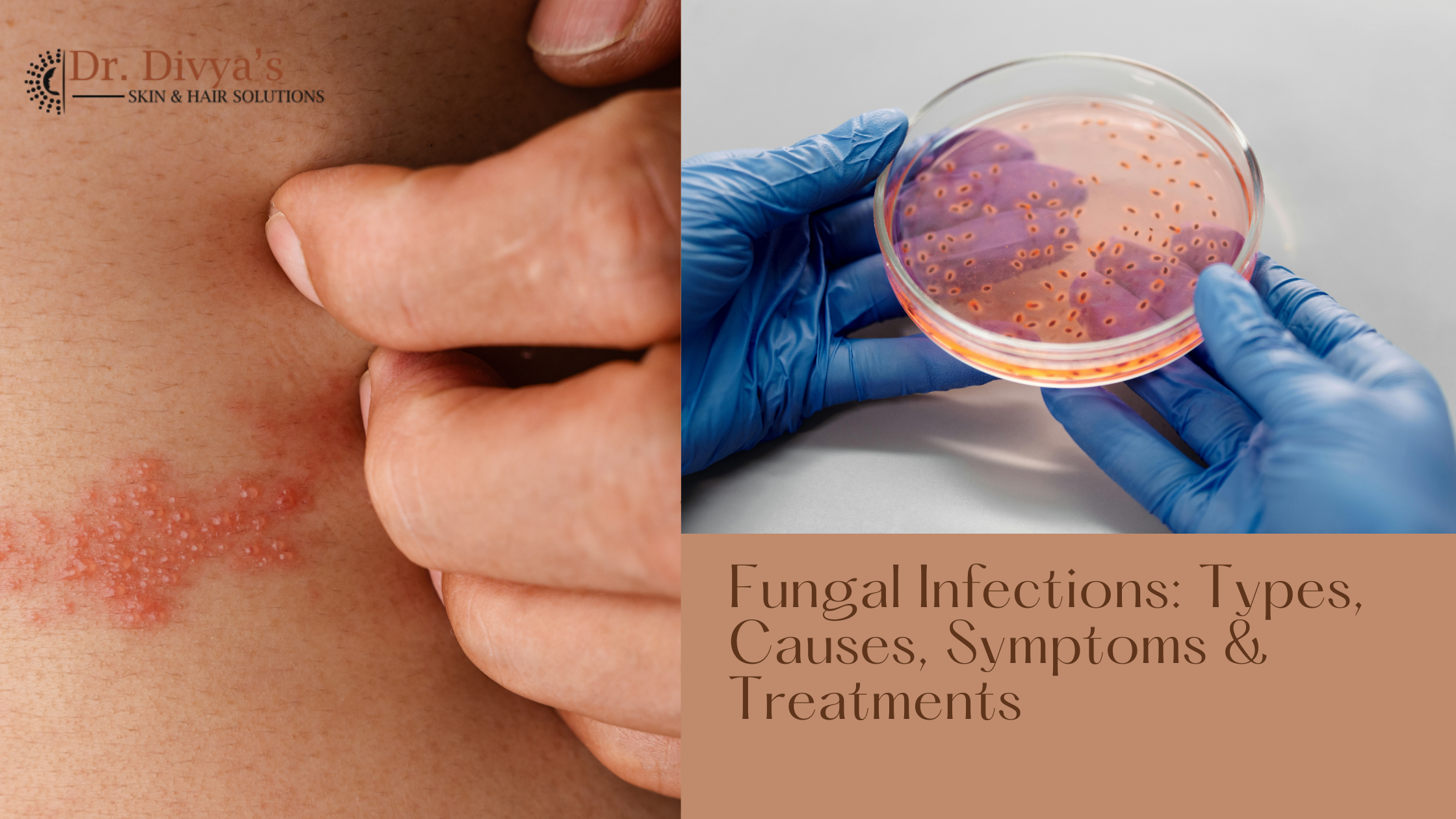Posted date on Aug 10, 2025
Fungal infections are a common health concern affecting millions worldwide. They occur when fungi overgrow on the skin, nails, or other body parts, causing irritation, discomfort, and sometimes serious complications if left untreated. Understanding the types, causes, symptoms, and treatment options for fungal infections is essential for effective management and prevention.
In this guide, we'll explore everything you need to know about fungal infections so you can protect your health and stay informed.
What Are Fungal Infections?
Fungal infections are caused by various types of fungi, including yeasts and molds. These infections can range from mild skin irritations to serious systemic infections that affect internal organs. They often thrive in warm, moist environments and can spread easily through direct contact or contaminated surfaces.
Common Types of Fungal Infections
Athlete's Foot (Tinea Pedis) : Affects the feet, especially between toes, Causes itching, redness, and peeling skin.
Ringworm (Tinea Corporis) : Circular, red, scaly patches on the skin, Highly contagious and spreads through direct contact.
Jock Itch (Tinea Cruris) : Occurs in the groin area, causes itching, redness, and irritation.
Yeast Infections (Candidiasis) : Caused by Candida species, Can affect skin folds, mouth (oral thrush), and genital areas.
Nail Fungus (Onychomycosis) : Thickened, discolored, or brittle nails.
Common in toenails due to moisture and tight footwear.
Systemic Fungal Infections
Affect internal organs, often in immunocompromised individuals.
Examples include histoplasmosis and aspergillosis.
Causes of Fungal Infections
Warm and Moist Environments: Fungi thrive in sweaty shoes, damp clothing, and humid conditions.
Weakened Immune System: Chronic illnesses, medications, or stress can make you more susceptible.
-
Direct Contact: Touching infected skin, surfaces, or personal items like towels.
-
Poor Hygiene: Infrequent washing and improper drying can encourage fungal growth.
-
Medical Conditions: Diabetes or hormonal imbalances can increase risk.
Symptoms of Fungal Infections
Symptoms vary depending on the type and location of infection, but common signs include:
-
Itching, burning, or irritation
-
Red, scaly, or peeling skin
-
Thickened or discolored nails
-
Pain or discomfort in affected areas
-
In severe cases, fever and systemic symptoms
Treatments for Fungal Infections
Treatment depends on the severity and type of infections:
-
Topical Antifungal Creams or Ointments
-
Used for mild skin infections like athlete's foot or ringworm.
-
Oral Antifungal Medications
-
Prescribed for severe infections or nail/systemic infections
-
Proper Hygiene and Lifestyle Changes
-
Keep skin clean and dry.
-
Wear breathable clothing and shoes.
-
Medical Supervision
-
Always consult a dermatologist or healthcare provider for persistent or widespread fungal infections.
Prevention Tips
- Avoid sharing personal items like towels, shoes, or nail clippers.
- Wear breathable fabrics and change socks/shoes frequently.
- Strengthen immunity with a balanced diet, exercise, and proper sleep.
- Dry skin thoroughly after bathing.
- Wash hands and affected areas regularly.
Conclusion
Fungal infections are common but manageable when detected early. By understanding the types, causes, symptoms, and treatment options, you can prevent severe complications and maintain healthy skin, nails, and overall wellbeing. Maintaining good hygiene, wearing breathable clothing, and seeking timely medical care are essential steps for keeping fungal infections at bay.
FAQs on Fungal Infection
1. Are fungal infections contagious?
Yes, many fungal infections like athlete's foot, ringworm, and jock itch are highly contagious through direct skin contact or contaminated surfaces.
2. Can fungal infections go away on their own?
Mild infections sometimes resolve naturally, but most require antifungal treatments to prevent worsening or spreading.
3. How long does it take for fungal infections to heal?
Healing time varies depending on the type and severity. Skin infections may improve in 2-4 weeks, while nail or systemic infections can take several months.
4. Can diet affect fungal infections?
A healthy diet that supports immunity can help your body fight infections, but it doesn't replace antifungal treatment. Reducing sugar intake may also help slow fungal growth.
5. When should I see a doctor for a fungal infection?
Seek medical attention if the infection is persistent, spreading rapidly, affects nails or internal organs, or is accompanied by fever or other systemic symptoms.





